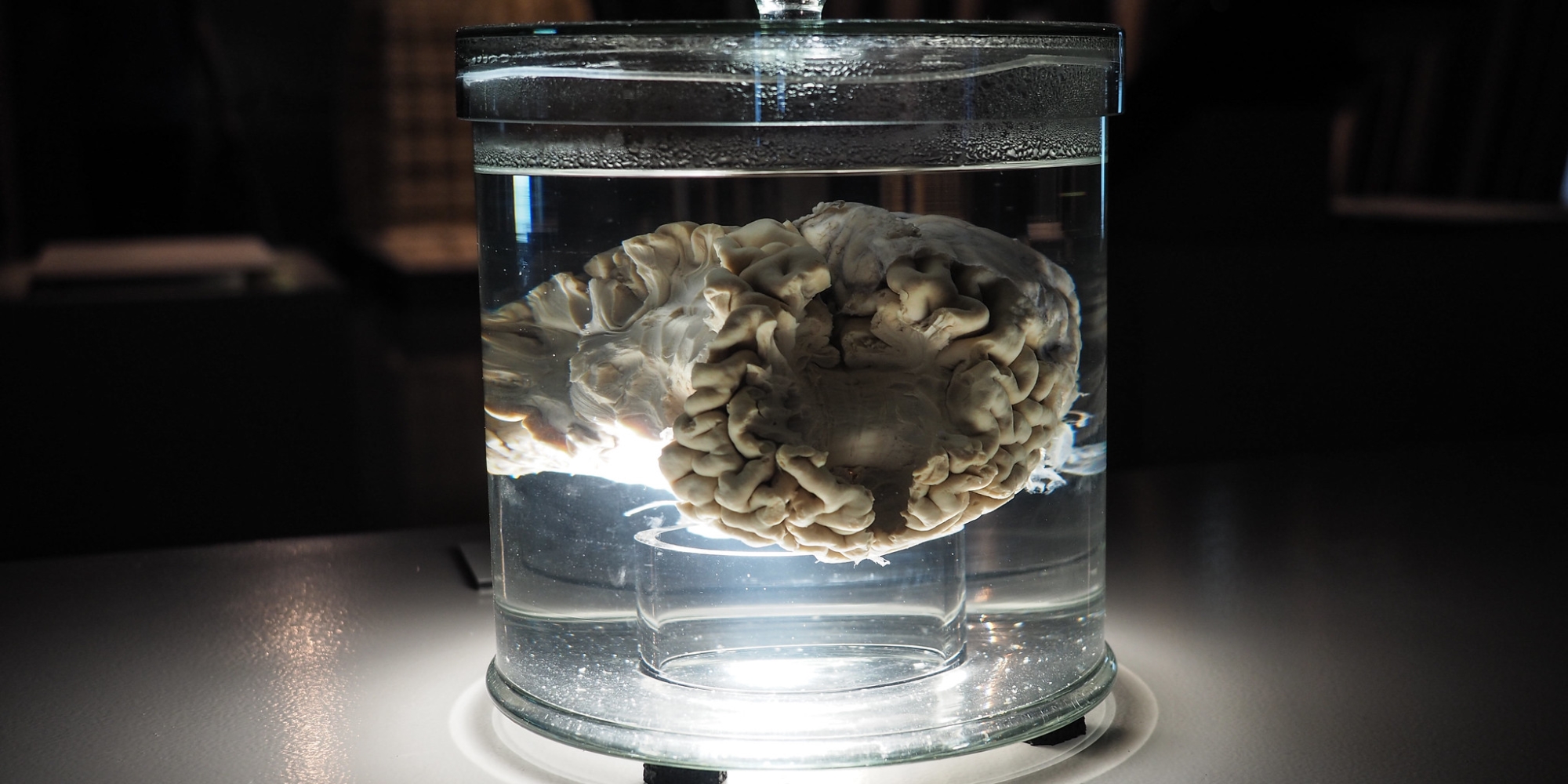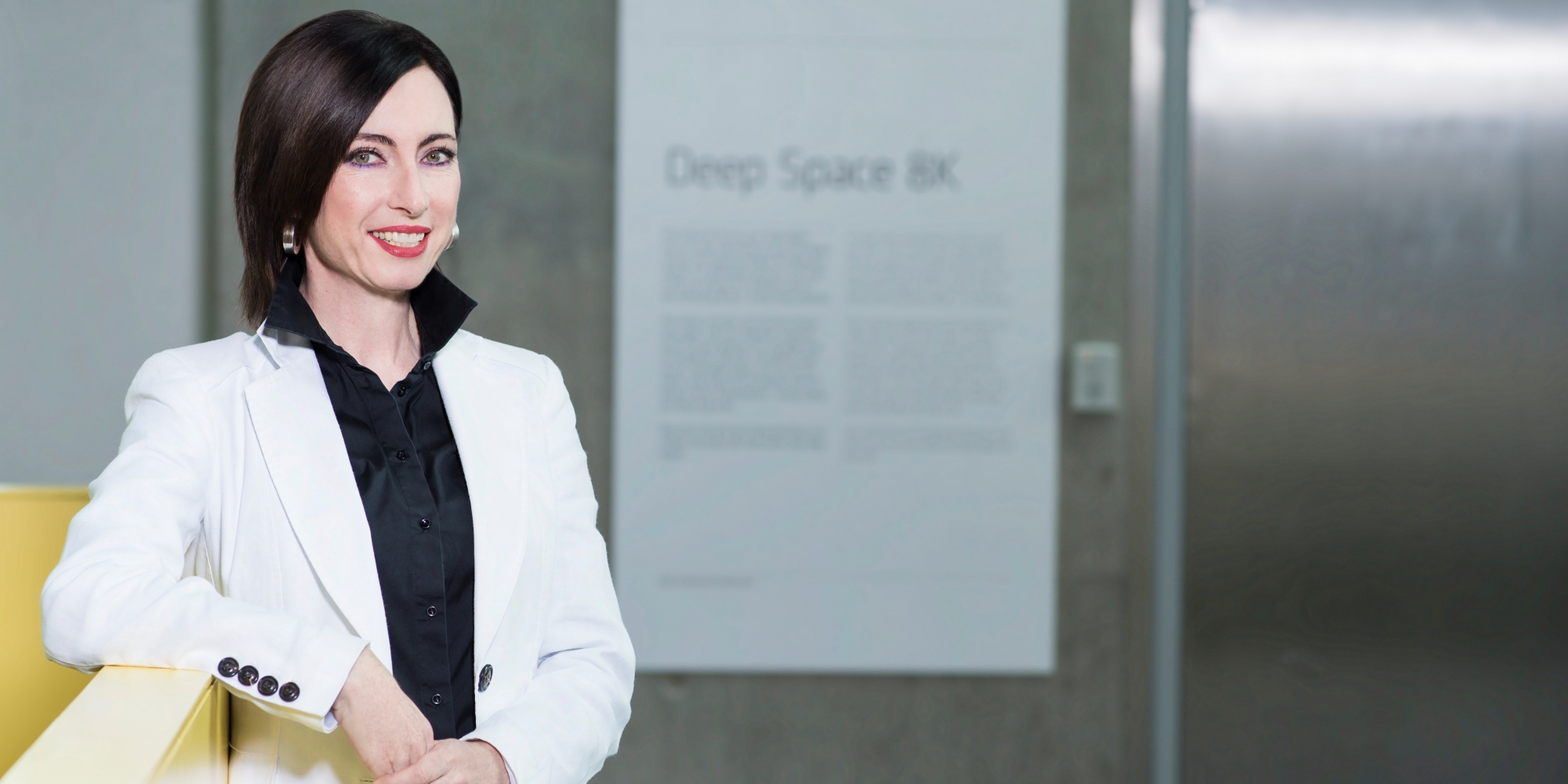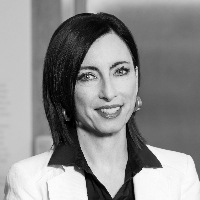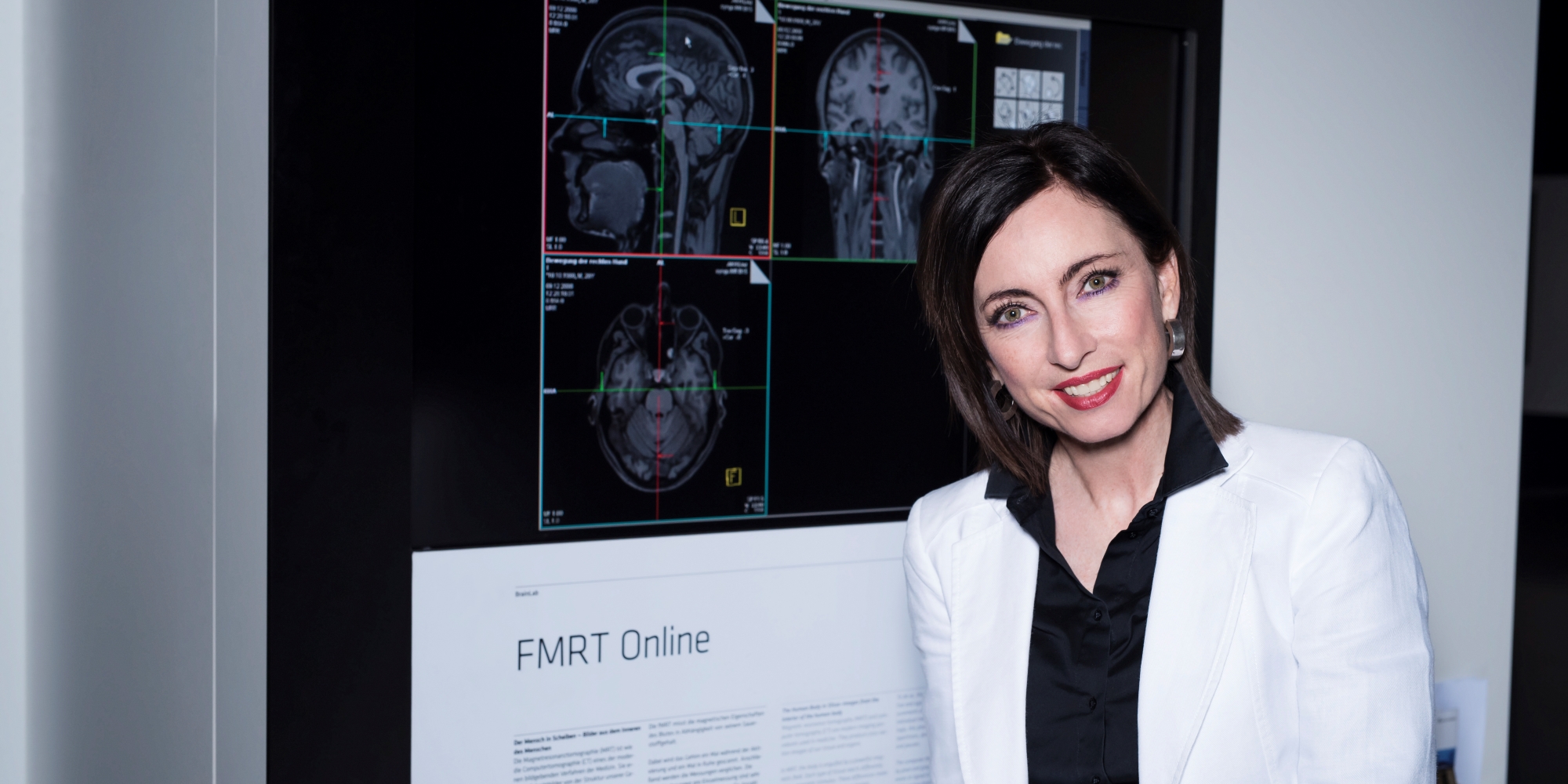Why are sporty children better at school? Why do sporty people have a better memory? Our brain is our most important organ: thinking, feeling, remembering and learning are centrally controlled here. Nevertheless, we pay much less attention to our brain than to our body. Neuroscientist Dr. Manuela Macedonia explains the positive effects of regular exercise on our brain in a light-hearted, understandable and humorous way. She’s been passing on her expertise to the audience in the Ars Electronica Center for 10 years now. Under the title “Brain for All” there’s a lecture series that makes the latest findings in brain research accessible to everyone without the need to be an expert.
And the success proves her right: During this time, a regular audience has built up, who come to all the dates, always sit in the same place and absorb everything that Manuela Macedonia serves them as a lecturer. After ten years, however, we don’t just want to talk about success. Today, for the first time, a completely different situation is emerging: the corona virus requires that the visitors cannot listen to the lecture in person in the Ars Electronica Center, but live from home, in front of their screens, on the sofa or in the kitchen, and with the possibility of interacting and asking questions nonetheless – in the context of Ars Electronica Home Delivery. The lecture will take place on Thursday, May 14, 2020 at 7 p.m. For Macedonia, who greatly misses her audience, this is a special situation, but she sees it merely as a temporary solution until everyone can meet again “in real”.
What is it like for you not to give your lecture “face to face” with the audience?
Manuela Macedonia: Well, I’m experiencing it for the first time on Thursday, so I can’t tell yet. However, I love my audience and the idea that they are sitting at home and are present in the online lecture makes me very happy. I will do everything as usual, because that’s how it has worked for me and for me it is a temporary solution, I want to have the people in front of me again and be present for them.
This year “Brain for All” also celebrates its 10th anniversary. Would you have expected this great success in the beginning?
Manuela Macedonia: I knew from my own experience that people other than researchers are interested in the brain. As soon as strangers find out that I work in neuroscience, they ask all kinds of questions about brain functions and, interestingly enough, about the so-called “neuromyths”: For example, whether the right half of the brain is really creative and the left half analytical, or why we only use 10% of our brain. I knew then that there is a lot to do to transfer “real” knowledge about the brain, but I didn’t foresee the success either.
Why do you think your lectures are so well received?
Manuela Macedonia: I love the subject matter and try to convey it in such a way that everyone understands everything and is enthusiastic about it. Basically, it is also easy to understand when I explain professional terms, sometimes repeat them and always keep in mind that I have extremely interested people in front of me, but no professional audience. Meanwhile I know the faces of many brain-for-all visitors: They usually sit in the same place and I miss them when they are not there! I can also tell from the questions asked by the audience at the Ars Electronica Center that they are advanced, educated brain enthusiasts. They have been coming to the “lecture” for a few years now! ;-)
In the last years there have been about 50 different topics. Nearly all dates were completely sold out. Some even had to be repeated due to the great demand. How do you always find all these different exciting topics?
Manuela Macedonia: I am a memory expert but I am also interested in many other topics in brain research. At large conferences, which take place mainly in Canada and the USA, I am out and about from 8 a.m. to 7 p.m. listening to lectures that have nothing to do with my own work but complete the brain puzzle. If I feel that a topic is relevant to the world outside of research, I turn it into a lecture at the Ars Electronica Center!

In the last 10 years, have you remembered any evening of “Brain for All” in particular? Why?
Manuela Macedonia: Every evening with the Ars Electronica Center audience is wonderful to me: Even when the lecture is fully booked, you can hear a pin drop! Such attentive and interested listeners! It’s also true that the audience sometimes “tempts” me to overrun my time a little, by making little detours to explain the subject matter in more detail. Besides, there is hardly a sign of fatigue and impatience in people’s faces! I love my audience at the Ars Electronica Center, every evening has been a great night so far! And even if the next event will take place via Ars Electronica Home Delivery and the visitors can’t come to see me, I still look forward to your “presence” in the streaming broadcast.
You are now not only a well-known scientist, but also a successful author. Both in your first book ” Move! And your brain says thank you”, as well as the second one “Get off the sofa!”, is about the positive effect of sports on the brain. Can you tell us more about that?
Manuela Macedonia: Exercise has a “systemic” effect: If we move enough, we trigger a series of processes in the brain system that are essential for its health. Medication can only influence certain areas of this cycle, but this is usually not enough to improve cognitive performance, mental stability and prevent dementia in old age. Exercise is not the bitter pill to swallow, but our ally for a well-functioning brain and this completely without side effects!
“Move it and your brain says thank you” has sold about 40,000 copies since its release in September 2018. In it, I explain many of these systemic processes, which are all interconnected as well. “Get off the sofa!” is an interactive book, the manual for the non-fiction book, also a supplement to it, in areas such as sleep, stress and nutrition.

“Move it! And your brain says thank you” is also the topic of the first live streamed online lecture. Are further evenings already planned?
Manuela Macedonia: Yes, on June 26th I will give another lecture about my heart’s desire to learn a foreign language, about the positive influence of exercise. The title is “Learning foreign languages with the body”. The lecture is suitable for all people who are learning a foreign language, but also for parents who support their children in learning a foreign language and last but not least for teachers who want to break new ground in teaching foreign languages. There will also be an interactive demo where the audience can participate at home.

Dr. Manuela Macedonia is Senior Scientist at the Johannes Kepler University Linz. Her work focuses on the development and neurocognitive testing of systems that guide people through learning processes. At the same time Dr. Macedonia is working on the neuroscientific basics of sensomotoric learning in experiments at the Max Planck Institute for Human Cognitive and Brain Sciences Leipzig, in the research group “Cognition and Plasticity” as Associated Researcher. Her research focuses on the multisensory enrichment of linguistic information and its effects on the memory of young adults. Her cooperation partners are the Institute for Neural Engineering at the Graz University of Technology and the Institute of Psychology at the Catholic University of Milan. More about science at www.macedonia.at and news in her profiles on Facebook and Instagram and on Twitter.
